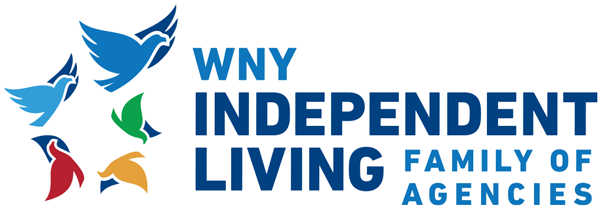Public Relations
Independent Perspective
Western New York Independent Living’s Weekly Podcast is designed to provide updates about agency and community service, programs, and events.
Recent Episodes
September 9, 2025
Laws Protecting the Rights of People with Disabilities
To listen to additional episodes, visit the Independent Perspective podcast site.
Independent Perspective In-Depth
Learn about some of WNYIL’s programs and services in-depth.
Recent Episodes
We’re Here to Help You.
Do you have feedback, questions or concerns? Call 1-800-348-8399 or click the link below for assistance.
